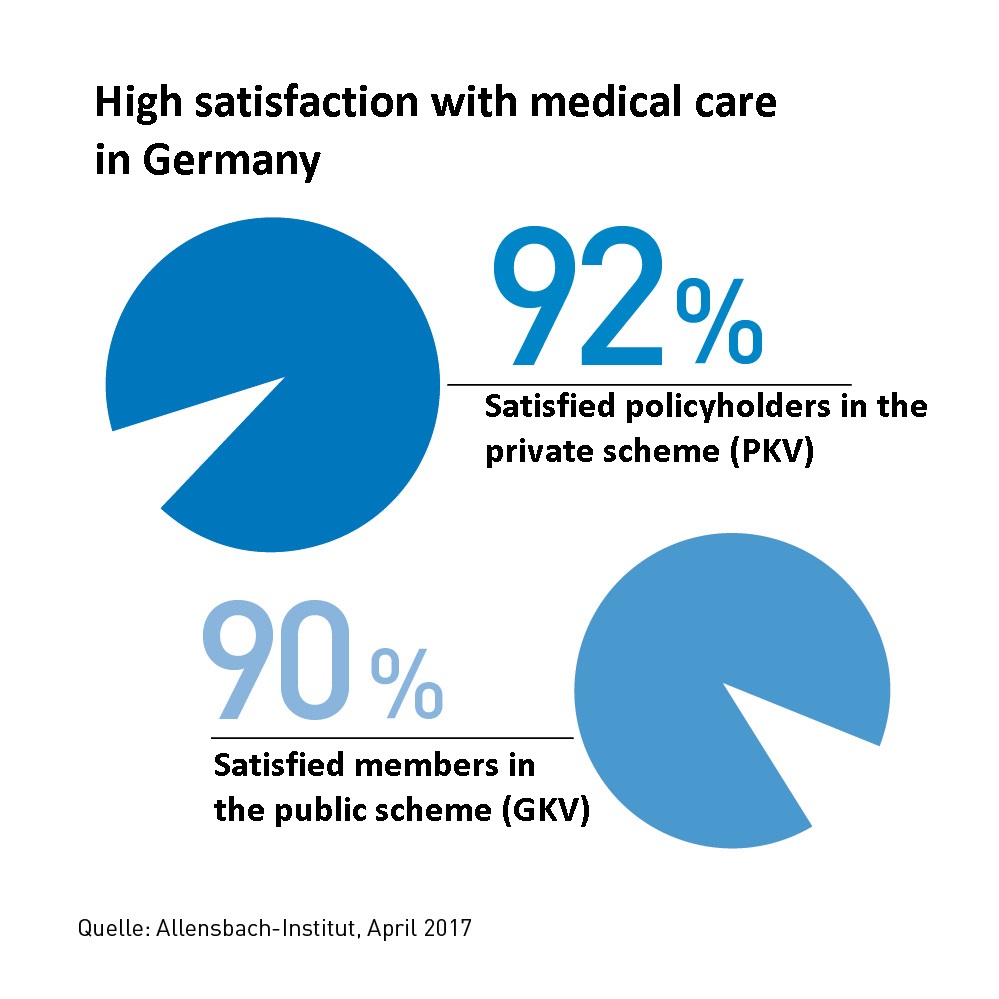Since 2007, everybody who is a resident in Germany must legally have health insurance. Under the law, you must have a policy with an insurance provider (called a Krankenkasse in German) that offers at least the minimum level of coverage allowed. Health insurance in Germany is obligatory for all residents, including researchers and scientists coming from abroad.
There are three options for health insurance while living in Germany: the government-regulated public health insurance system (Gesetzliche Krankenversicherung, GKV), private health insurance from a German or international insurance company (Private Krankenversicherung, PKV) or a combination of the two that supplements coverage not included in your public health insurance policy.
Who needs the health insurance?
Although it is compulsory by law to have health insurance, it also depends on your income in which slab of insurance do you fit in.
In Germany, the public health insurance is known as Gesetzliche Krankenversicherung (GKV), which translates as ‘statutory health insurance’, covers the vast majority of people – around 90 per cent.
If your gross salary is less than €59,400 per year or €4,950 per month, it is compulsory to be insured under a public, statutory health insurance scheme, and you must choose an insurance provider.
How to obtain health insurance?
If you already have a job or a job offer, the first and foremost step is to talk to your employer about getting yourself registered. You can choose your insurer yourself and do not have to go with your employer’s suggested provider.
Three of the largest providers of health insurance in Germany are AOK, Barmer GEK and TK. In comparison, there are over 100 of these companies that offer good English language websites. You can go and check the health plans as per your requirements.
Different providers can offer slightly different rates and incentives, such as cashback if you quit smoking or are involved in regular fitness activities, so it is worth researching and seeing your options.
Once you are registered with an insurance provider, it will issue you an insurance card, called a Gesundheitskarte, in German. The insurance card has a chip to store your data and must be presented the first time you visit a doctor each quarter.
Cost of health insurance
All public health insurance providers in Germany charge the same basic premium of 14.6 per cent of your gross income, plus a supplemental charge that is an average of 0.9 per cent of your gross income, to a maximum monthly payment of €4,425.
If you earn more than this amount, you will not pay a higher insurance premium. The basic premium is split equally between you and your employer: 7.3 per cent each. By law, from January 1, 2019, employers will pay half the supplemental charge as well.
You and your dependents must also become members of Germany’s long-term nursing care scheme for additional benefits. This covers some of the cost of meeting personal nursing needs, including bathing and feeding those who become substantially disabled.
The nursing care scheme cost is either 2.55 per cent or 2.8 per cent of your gross salary, of which your employer pays a maximum of €56.
Coverage of the health insurance
The threshold all health insurance coverage in Germany has to meet includes:
- in-patient (hospital) care as a ward patient
- out-patient care from a general practitioner or medical specialist (such as a cardiologist)
- prescription drugs
- pregnancy care
- basic dental care
- employee sick note
- Statutory Sick Pay when the employer’s duty to pay it is over (up to 90 per cent of your net salary)
Besides, all non-working dependents – spouse, civil partner and children (up to a specified age) – living at your address in Germany will be covered under your plan at no additional cost. They simply need to be registered with the same health insurance provider as the paying member.
Eligibility to get the private insurance
Germany also offers the opportunity to opt for private health insurance (private Krankenversicherung or PKV for short), but only on the following conditions:
you earn more than a fixed amount (€59,400 per year in 2018), or;
self-employed, or;
you are a student, in which case you can choose private health insurance for the duration of your studies
However, even if you meet one of these criteria, you cannot select private healthcare and opt for public health coverage.
When should you get health insurance?
Ideally, those coming to work in Germany from another country in the EU should get their health insurance as soon as they arrive and register as a German resident. Don’t panic, though: Germany offers a brief grace period from your registration date, and your employer will be able to guide you through the process.
If you are coming from a country outside the EU, you will need proof of valid German health insurance to get a residency visa. In this case, you must have your insurance policy in place in good time before you arrive in Germany.
FAQs
Here, we have answered some questions for your benefit.
Q1. How can a foreigner get health insurance in Germany?
Ans. As a foreign worker in Germany, you can only opt for private health insurance if you meet the following requirements, you have an income of at least € 59,000 per year or approximately € 4,900 per month. You are a freelancer or self-employed in Germany.
Q2. Can I live in Germany without health insurance?
Ans. Failing to take out health insurance is illegal. It can also be a costly option: if you reside without health insurance, you can end up charged back payments to cover your entire stay in Germany.
Q3. How much does it cost to see a doctor in Germany?
Ans. Costs for a general check-up are usually around €25–30. If only state insurance covers you, remember to check that your doctor offers state-funded provision. Otherwise, the fees will be much higher.
We truly hope we were able to resolve any queries you might have had. Good luck!





